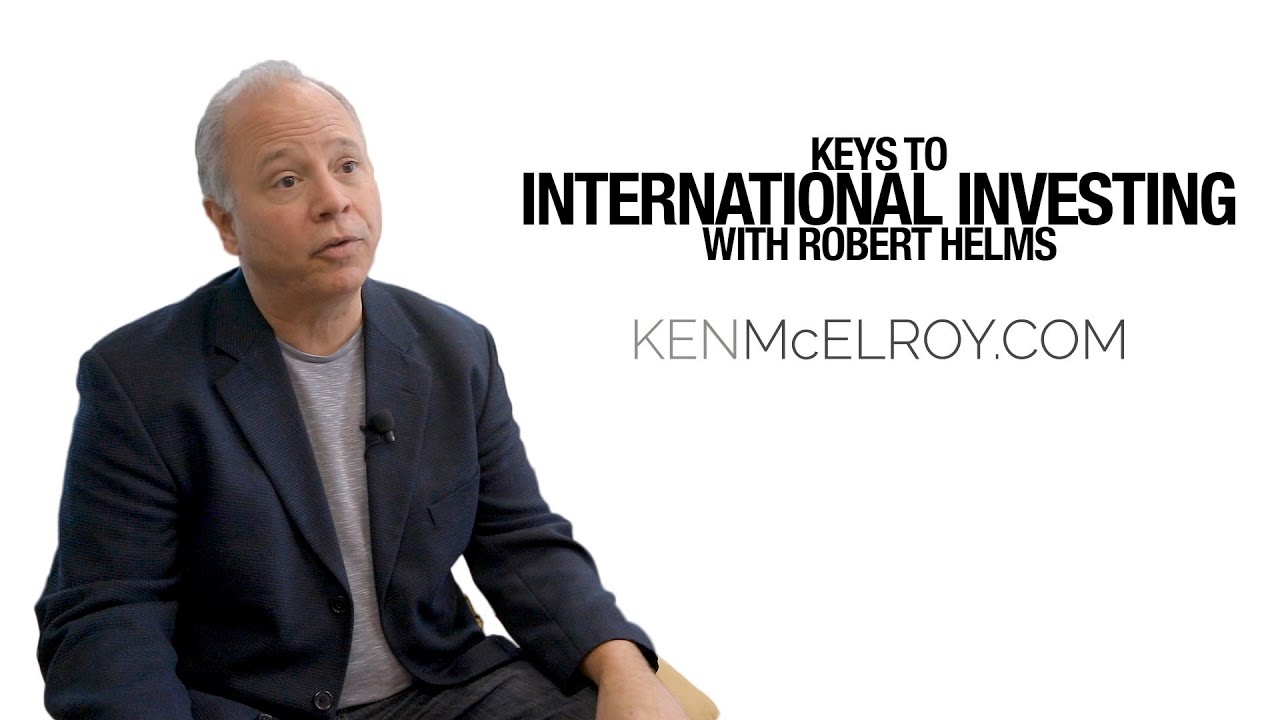Global Opportunities: International Property Investment via Golden Visas
Are you tired of investing in the same-old stocks, bonds, and mutual funds? Are you looking for a unique and exciting way to diversify your investment portfolio? Look no further than international property investment!
As a seasoned expat with experience living abroad in multiple destinations, I have personally invested in international properties and can attest to the many benefits. Not only does international property investment offer the potential for high returns, but it also allows you to immerse yourself in new cultures, experience unique architecture and design, and even potentially earn income through vacation rentals.
One of my most successful investments was in a charming villa in Tuscany, Italy. The property not only provided a beautiful vacation home for my family, but it also generated steady rental income during peak tourist seasons. Another savvy investment was a modern apartment in the bustling city of Hong Kong, which has appreciated significantly in value over the years.
But investing in international property is not without its challenges. It is important to thoroughly research local laws and regulations, cultural customs, and potential language barriers. This is where my experience as an expat and international property investor comes in handy. I have a deep understanding of these issues and can provide valuable insights and practical tips to help you navigate these challenges.
So why not think outside the box and consider international property investment as a unique and exciting way to diversify your portfolio? With the right research, expertise, and guidance, it can be a truly rewarding experience.
Can you invest in real estate internationally?
Investing in real estate internationally can be a lucrative opportunity for those looking to diversify their portfolio or establish a second home abroad. However, it’s important to approach the process with caution and a thorough understanding of the local laws, market conditions, and cultural nuances. Here are some key points to consider when investing in real estate internationally:
Visas and residency requirements
Before investing in real estate abroad, it’s important to understand the visa and residency requirements of the country you are interested in. In some cases, investing in real estate can be a pathway to obtaining residency or citizenship. For example, some countries offer “golden visas” that provide residency to those who invest a certain amount in real estate. However, it’s important to carefully review the requirements and seek guidance from a legal professional to ensure compliance with local laws.
Market conditions and property values
The real estate market can vary greatly from country to country, and even within different regions of the same country. It’s important to do thorough market research and consult with local real estate professionals to gain an understanding of property values, rental yields, and market trends. It’s also important to consider the potential for currency exchange rate fluctuations and the impact they may have on your investment.
Cultural differences and local customs
Cultural differences can impact the real estate market in significant ways. For example, in some countries, it may be customary for buyers to negotiate the price of a property, while in others, fixed prices are the norm. It’s important to research and understand local customs to avoid any misunderstandings or miscommunications.
Legal considerations
Investing in real estate internationally involves navigating a complex web of legal considerations, including property ownership laws, tax regulations, and contractual agreements. It’s important to seek guidance from a legal professional who understands both your home country’s laws and the laws of the country you are investing in.
Personal considerations
Finally, it’s important to consider your own personal circumstances when investing in real estate internationally. This includes factors like your long-term goals, financial situation, and cultural adaptability. Investing in real estate abroad can be an exciting opportunity, but it’s important to carefully consider all factors before making a decision.
By taking the time to thoroughly research the market, seek guidance from professionals, and consider personal factors, you can make an informed decision that aligns with your long-term goals and aspirations.
Is it worth investing in overseas property?
Moving abroad can be an exciting and life-changing experience, but it also requires careful planning and consideration. One important decision to make is whether investing in overseas property is worth the effort and expense. In this article, we will explore the pros and cons of international property investment to help you make an informed decision.
The Benefits of Investing in Overseas Property
One of the main benefits of investing in overseas property is the potential for higher returns on your investment. Many countries offer more affordable property prices and higher rental yields than you may find in your home country. If you choose your location wisely, you could end up with a profitable investment that generates income for years to come.
Another advantage of investing in overseas property is the opportunity to diversify your portfolio. By investing in multiple countries, you can spread your risk and reduce the impact of economic or political turmoil in one location. This can provide peace of mind and stability for your overall financial plan.
The Challenges of Investing in Overseas Property
While investing in overseas property can offer many benefits, it also comes with some challenges and risks. One of the biggest challenges is navigating the real estate market in a foreign country. You may not be familiar with local customs, laws, and regulations, which can make it difficult to find and purchase a property that meets your needs.
Another challenge is managing the property from afar. If you are renting out the property, you will need to find reliable tenants, handle maintenance issues, and collect rent payments. This can be especially difficult if you are not familiar with the local language or culture.
What to Consider Before Investing in Overseas Property
Before you invest in overseas property, it’s important to do your research and consider your personal goals and financial situation. Here are a few things to keep in mind:
- Location: Choose a location that fits your lifestyle and investment goals. Consider factors such as rental demand, property prices, and potential for capital growth.
- Legal requirements: Research the legal requirements for purchasing property in your chosen location. This may include obtaining a visa, navigating local laws and regulations, and paying taxes.
- Property management: Decide how you will manage the property from afar. Will you hire a local property manager or handle things yourself?
- Financing: Determine how you will finance the purchase of the property. Will you use cash or take out a mortgage?
Why invest in international real estate?
Investing in international real estate can seem daunting, but it can also provide many benefits that are difficult to find in your home market. Whether you are planning to move abroad or have already made the move, investing in international real estate can be a smart financial decision.
Benefits of international real estate investment
Diversification: Investing in international real estate provides diversification to your investment portfolio. By expanding your investments beyond your home market, you spread your risk and reduce the impact of any one market downturn.
Tax advantages: Some countries offer tax incentives for foreign investors in real estate, making it an attractive investment opportunity. Additionally, some countries have lower property taxes, which can save you money in the long run.
Currency advantages: When you invest in real estate in a foreign country, you are also investing in their currency. If the currency appreciates against your home currency, you can earn more money on your investment.
Rental income: If you invest in a property that you can rent out, you can earn rental income in a foreign country. This income can be a great source of passive income and can help offset the cost of your investment.
Challenges of international real estate investment
While investing in international real estate can be beneficial, it also comes with its own set of challenges.
Legal hurdles: Each country has its own laws and regulations regarding property ownership and foreign investment. It is important to do your research and work with a reputable lawyer to ensure you are following all legal requirements.
Cultural differences: Moving to a new country can be a culture shock, and investing in real estate in a foreign country can be even more difficult. You must be prepared to adapt to a new culture and way of doing business.
Language barriers: If you are not fluent in the local language, it can be difficult to navigate the real estate market and communicate with local officials and contractors.
Is international real estate a thing?
Many people dream of owning property abroad, whether it’s a vacation home or a permanent residence. However, the idea of investing in international real estate may seem daunting. After all, how do you navigate the legalities and cultural differences of purchasing property in a foreign country? In this article, we’ll explore the concept of international real estate and offer practical tips for those considering property investment abroad.
What is international real estate?
International real estate refers to property located outside of your home country. This can include everything from a beachfront villa in Bali to a cozy apartment in Paris. Investing in international real estate can provide a range of benefits, including rental income, potential tax advantages, and a vacation home for personal use.
Why invest in international real estate?
There are many reasons why individuals and families choose to invest in international real estate. Some are looking for a second home where they can spend their vacations, while others are seeking a permanent residence in a new country. Additionally, many people see real estate as a long-term investment strategy that can provide financial security and stability.
What are the challenges of international real estate?
While the benefits of international real estate are clear, there are also challenges associated with investing in property abroad. These can include navigating complex legal systems and tax codes, dealing with language barriers, and adapting to cultural differences. Additionally, owning property in a foreign country can require a significant financial investment, which may not be feasible for everyone.
Practical tips for investing in international real estate
If you’re considering investing in international real estate, there are a few practical tips that can help you navigate the process:
- Research the local real estate market and consult with a local real estate agent or lawyer with experience in international property transactions.
- Be prepared for cultural differences in the buying and selling process, including different negotiation tactics and legal requirements.
- Understand the tax implications of owning property abroad, including any taxes you may need to pay in both your home country and the country where the property is located.
- Consider working with a property management company to handle maintenance and rental income if you plan to rent out your property while you’re not using it.
The bottom line
International real estate can be a compelling investment opportunity for those willing to navigate the challenges of buying property in a foreign country. With careful research, planning, and a willingness to adapt to cultural differences, you can turn your dream of owning property abroad into a reality.
As someone who has lived and invested in international real estate, I can attest to the excitement and challenges that come with this type of investment. However, with the right mindset and a willingness to learn, investing in international real estate can be a valuable and rewarding experience.
investing in international property can be a rewarding experience for expats. It is important to understand the local customs and cultural events to ensure a successful investment. Additionally, having knowledge of the legal aspects of visas, citizenship programs, and golden visas can provide opportunities for long-term investment and residency. As an experienced expat, I have seen the benefits of investing in international property firsthand and encourage others to consider it as well. With the right knowledge and guidance, expats can navigate the complex world of international property investment and thrive in their new home.






